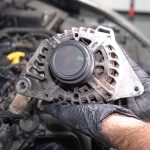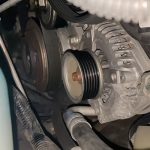The Honda Fit is a popular subcompact car known for its fuel efficiency, practicality, and affordability. However, like any other vehicle, it may encounter issues that require repairs over time.
One of the components that can fail in the Honda Fit is the alternator, which is responsible for charging the battery and powering the electrical system.
If you are a Honda Fit owner experiencing issues with your alternator, you may be curious about the replacement cost.
In this article, we will discuss the factors that can impact the Honda Fit alternator replacement cost and provide you with useful information to help you make an informed decision about repairing your vehicle.
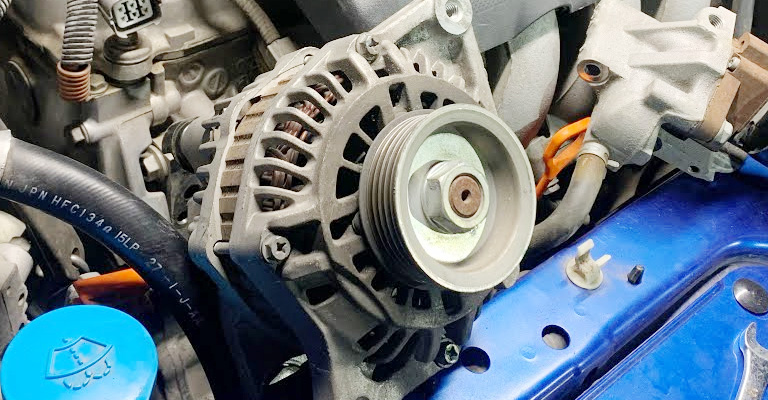
How Much Does It Cost To Replace An Alternator In A Honda Fit?
Alternator replacements for Honda Fits typically cost $700 to $1,300. Parts range from $570 to $1,130, while labor is estimated to cost between $130 and $170. Alternator Replacement prices are affected by your location and your vehicle.
Depending on the auto parts that need to be repaired or replaced, the model of the car, and labor cost, these numbers will vary. Changing an alternator takes about two hours, similar to repairing a driveline and a little faster than repairing a clutch.
Alternatively, if the cost of a new alternator is too high, your mechanic might be able to provide you with a remanufactured or rebuilt alternator. If there are any problems with your purchases, make sure they are covered by a warranty.
How Does The Alternator Work?
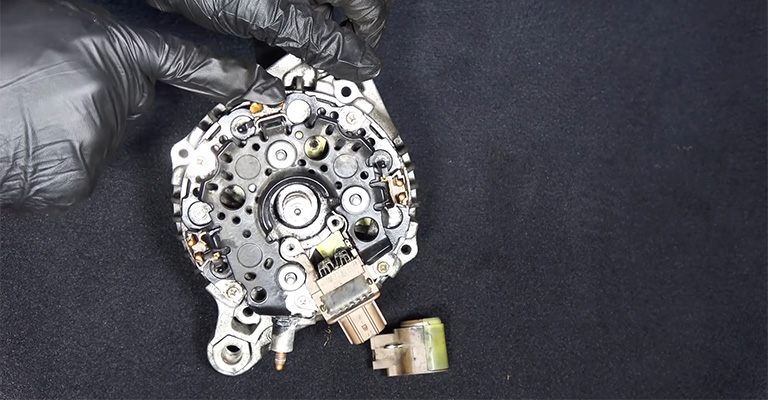
When the serpentine belt or drive belt turns the alternator, it creates power. Built-in voltage regulators and rectifiers ensure the vehicle receives the proper current as it spins, producing electricity.
By using rectifier diodes inside the alternator, the alternator converts alternating current (AC) into direct current (DC).
How Urgent Is An Alternator Repair?
The alternator is responsible for charging the battery, so if the alternator fails, the car won’t work properly. Having trouble starting and stalling can cause you to be late. It is possible for certain safety components not to function when you need them, such as the headlights.
Additionally, a faulty alternator can cause certain electrical systems to be overcharged or undercharged, resulting in damage. You may have to make additional repairs if you leave the bad alternator unrepaired.
A reputable automotive repair service should inspect your electrical systems when you notice alternator problems. Regularly checking an alternator can even be a good idea, like when you get an oil change or rotate your tires.
Before Repairing The Alternator
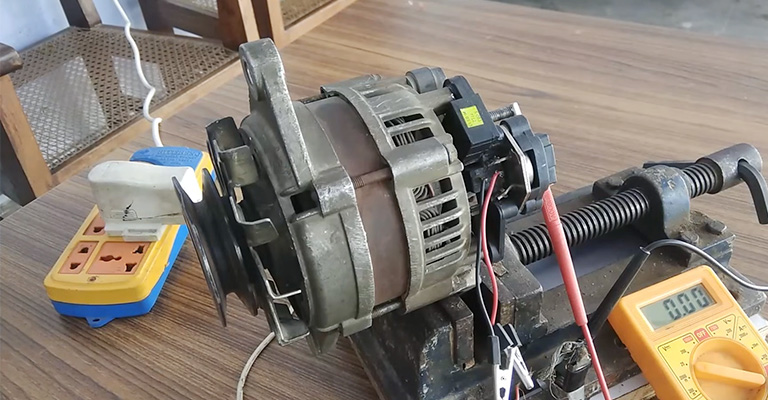
Before installing a new alternator, the mechanic should check the entire charging system, including checking battery cables for corrosion.
Steps when replacing an alternator:
- Ensure that the charging system (batteries, cables, alternators) is in good working order.
- Make sure the drive belts are in good condition.
- Perform an alternator output test.
- In case of a faulty alternator, remove it and replace it.
- Make sure the alternator output is tested again.
Our recommendation for alternator replacements:
Every time you have your vehicle serviced, make sure the charging system is being inspected. In addition to cleaning the battery cables, the mechanic should tighten them when performing a major service.
How Often Do Alternators Need To Be Replaced?
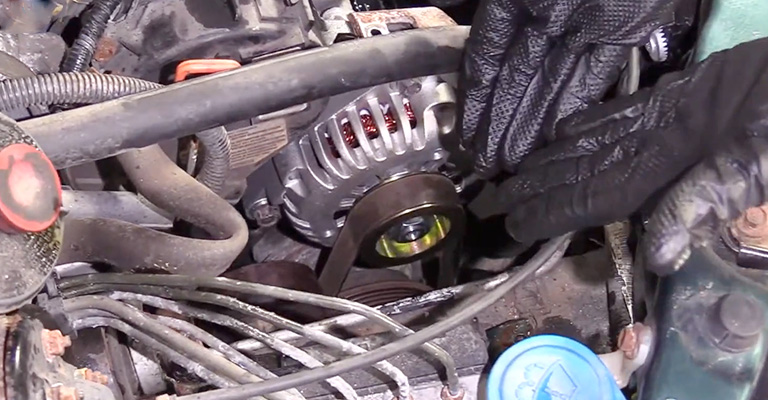
It is fairly common for alternators to fail, but alternators can last well over 100,000 miles with no problem. The life of an alternator can be shortened by harsh driving conditions and custom power accessories.
How Do I Replace An Alternator?
The following is how a professional mechanic would replace a failed alternator:
- The negative battery cable should be disconnected.
- From the back of the alternator, disconnect the cable connections.
- By loosening the belt tensioner, remove the drive belt from the pulley.
- You will need to unfasten the mounting bolts connecting the alternator to the bracket once the belt is off.
- From the bracket, remove the old alternator.
- Examine the mounting holes of the new alternator against the mounting holes of the old alternator.
- Using a ratchet, tighten the bolts on the new alternator.
- Using the tensioner arm, slip the drive belt back into place and reconnect all cable connections.
- Test the alternator output using a multimeter after reviewing the installation.
Make sure the battery is fully charged before installing it. The alternator can be damaged by charging a low-voltage battery with the new alternator.
What Are The Symptoms Related To A Bad Alternator?
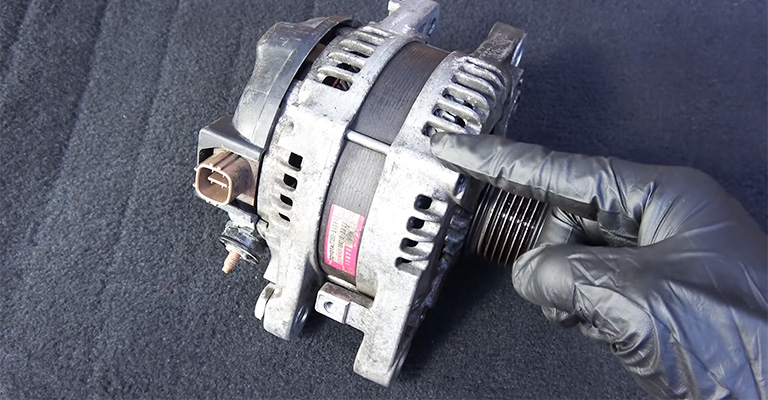
During driving, the dashboard battery warning light will illuminate if the alternator fails. There will soon be a loss of power in all electrical components, the vehicle will stall, and a jump start will not work.
The alternator’s bearing can fail, causing a grinding sound at different engine speeds. The following signs may indicate that your car needs an alternator repair:
Lit dashboard warning lights: An illuminated battery light, check engine light, or charging system light may indicate a problem with the alternator.
A burning odor: A burned smell may indicate a problem with the alternator pulley or drive belt.
Whining or squealing noises: This can be caused by an unaligned alternator pulley or worn-out pulley bearings.
Electrical system concerns: Damaged alternators may cause issues with your radio, power windows, and air conditioning.
Dim or too-bright lights: The headlights may not produce enough power due to a damaged alternator.
Hard starting or stalling engine: When the battery isn’t properly charged (because the alternator isn’t working), the car won’t start.
Dead battery: When the engine is running, the alternator isn’t charging the battery.
Can I Drive With An Alternator Problem?
Vehicles with weak alternators can be driven to a repair shop, but cars with completely failed alternators must be towed.
Also, read – Honda CRV replacement cost
Final Words
You use your alternator to charge your battery, which powers your car’s electronics like the radio and air conditioning. To turn on your vehicle, you also need a battery. You won’t be able to start your vehicle if your alternator malfunctions, resulting in no charge to your car’s battery.

